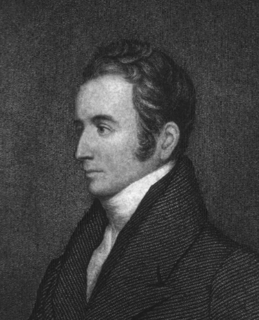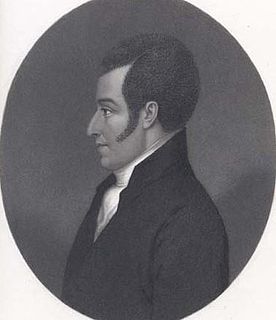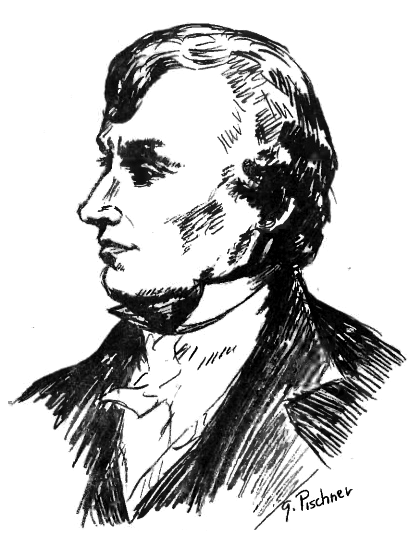
Liberia is a country in West Africa which was founded by former American slaves. It is one of only three sovereign countries in the world that were founded by former slaves, the others being Haiti and Sierra Leone, established by Great Britain. The emigration of former slaves was funded and organized by the American Colonization Society (ACS). The mortality rate of these settlers was the highest in accurately recorded human history. Of the 4,571 emigrants who arrived in Liberia from 1820 to 1843, only 1,819 survived until 1843.

The Flag of Liberia or the Liberian flag bears a close resemblance to the flag of the United States, showing freed American and Caribbean ex-slaves' offspring and bloodlines marking the origins of the country.

Monrovia is the capital city of the West African country of Liberia. Located on the Atlantic Coast at Cape Mesurado, Monrovia had a population of 1,010,970 as of the 2008 census. With 29% of the total population of Liberia, Monrovia is the country's most populous city.

Jehudi Ashmun was an American religious leader and social reformer from New England who became involved in the American Colonization Society. It founded the colony of Liberia in West Africa as a place to resettle free people of color from the United States.

Samuel Smith was a United States Senator and Representative from Maryland, a mayor of Baltimore, Maryland, and a general in the Maryland militia. He was the brother of cabinet secretary Robert Smith.
Robert Finley was an American clergyman and educator from New Jersey who is known as one of the founders of the American Colonization Society, which established the colony of Liberia in West Africa as a place for free American Blacks.
Samuel John Mills Jr. was an American preacher and missionary from Connecticut. He is known for contributing to the organization of the American Board of Commissioners for Foreign Missions and to the formation of the American Colonization Society in 1817. The latter was intended to establish a colony in West Africa as a destination for free American blacks.

The Republic of Maryland was a country in West Africa that existed from 1834 to 1857, when it was merged into what is now Liberia. The area was first settled in 1834 by freed African-American slaves and freeborn African Americans primarily from the U.S. state of Maryland, under the auspices of the Maryland State Colonization Society.

Freedom's Journal was the first African-American owned and operated newspaper published in the United States. Founded by Rev. Peter Williams, Jr. and other free black men in New York City, it was published weekly starting with the 16 March 1827 issue. Freedom's Journal was superseded in 1829 by The Rights of All, published between 1829 and 1830 by Samuel Cornish, the former senior editor of the Journal.
Lott Cary was an African-American Baptist minister and lay physician who was a missionary leader in the founding of the colony of Liberia on the west coast of Africa in the 1820s. He founded the first Baptist church there in 1822, now known as Providence Baptist Church of Monrovia. He served as the colony's acting governor from August 1828 to his death in November of that year.

John Brown Russwurm (1799–1851) was an abolitionist, newspaper publisher, and colonizer of Liberia where he moved from the United States. He was born in Jamaica to an English father and enslaved mother. As a child he traveled to the United States with his father and received a formal education, becoming the first African American to graduate from Bowdoin College.

Mississippi-in-Africa was a colony on the Pepper Coast founded in the 1830s by the Mississippi Colonization Society of the United States and settled by American free people of color, many of them former slaves. In the late 1840s, some 300 former slaves from Prospect Hill Plantation and other Isaac Ross properties in Jefferson County, Mississippi were the largest single group of emigrants to the new colony. Ross had freed the slaves in his will and provided for his plantation to be sold to pay for their transportation and initial costs.
The Back-to-Africa movement, in the nineteenth century called the colonization movement, encouraged Americans of African ancestry to return to Africa—not to their original homelands, which in most cases were unknown, but to the continent. In general the movement was an overwhelming failure; very few Blacks wanted to move to Africa, and the small number that did—some under duress—initially faced brutal conditions. As the failure became known in the United States in the 1820s, it spawned the abolitionist movement. In the twentieth century Marcus Garvey, Rastafarians, and some other African Americans espoused the concept, but few actually left the United States.

Daniel Coker (1780–1846), born Isaac Wright, was an African American of mixed race from Baltimore, Maryland who gained freedom from slavery and became a Methodist minister. He wrote one of the few pamphlets published in the South protesting slavery and supporting abolition. In 1816 he helped found the African Methodist Episcopal Church, the first independent black denomination in the United States, at its first national convention in Philadelphia.

Abolitionism in the United States of America was the movement which sought to end slavery in the United States, active both before and during the American Civil War. In the Americas and western Europe, abolitionism was a movement which sought to end the Atlantic slave trade and set slaves free. In the 17th century, enlightenment thinkers condemned slavery on humanistic grounds and English Quakers and some Evangelical denominations condemned slavery as un-Christian. At that time, most slaves were Africans, but thousands of Native Americans were also enslaved. In the 18th century, as many as six million Africans were transported to the Americas as slaves, at least a third of them on British ships to North America. The colony of Georgia originally abolished slavery within its territory, and thereafter, abolition was part of the message of the First Great Awakening of the 1730s and 1740s in the Thirteen Colonies.
For the rugby player from New Zealand, see Isaac Ross.
The following is a timeline of the history of the city of Monrovia, Liberia.




















